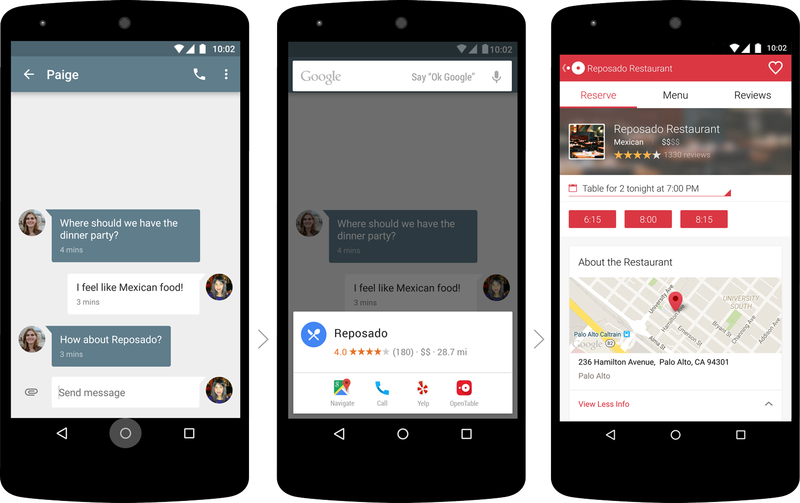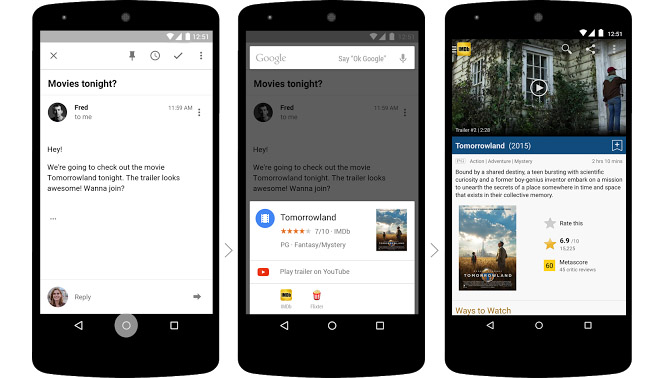One of the Bloomberg editors, hot on the heels of the past Google conference, talks about his impressions of the upcoming Google Now update.

The updates announced by Google have truly enormous potential for the company's future. For years, the search giant has been distancing itself from its main product – search – due to the development of mobile applications and their isolation. During the annual Google I / O conference last Thursday, the main talk was about the company's plans for Android Wear, information about the next version Android was revealed, which is still unofficially designated 'M', and a new 'smart' home network was also introduced.
Users are increasingly using programs that often do not need to search the world wide web and, as a result, Google's position as the 'master' of our network habits, interests and needs is threatened.
Google may have reversed this trend today. The company introduced new OS functionality Android that gives Google Now (a notification bar based on your interests) the ability to integrate in a separate layer on top of any app running on a tablet or phone. The app is always active and 'alert'. This means that you can get contextual search information about literally everything you do on the device, provided there is text and information that Google itself can get from the application. And the biggest plus is that developers won't need to make any changes to existing software to include a new service called Now on Tap in providing search and contextual information.

For example, while listening to music on Spotify, you can search for more detailed information about an artist, or if you are discussing a restaurant on WhatsApp, Google can display information about the place and even help you with booking a seat. And this is not a feature of the application, but rather an assistant built into the entire OS.
The scale of the step lies in two aspects. First, the new functionality, as a kind of 'cement' for your digital life, returns the dominant position of the company. The World Wide Web has expanded significantly, in large part due to Google's ability to track, organize, and understand parts of it. Now the company can do the same with any application running on your device. This allows Google to return to the realm of search, using applications as a common and understandable tool for everyone and gives the company a second life with access to user actions and needs.

And secondly, it is beginning to emerge how Google can be a glue between applications, a kind of neutral platform between two activities. This is a radically new concept of how we use our gadgets and how our apps interact. At the moment, we use OS-specific tools that allow applications to interact (according to rules dictated by OS vendors, not developers). But imagine that developers no longer have to think about how their product relates to the rest of the world; that Now on Tap will have sufficient awareness of the core functionality of applications to predict the most likely user interactions with them and then facilitate those needs. This is the main message of Now on Tap and it is unique in its kind.
In other things, technology has its limits. There is no road to such a service in iOS due to the closed nature of the OS (and the fact that they will try to create a similar product in Apple). And Google will also have to prove that this 'natural' processing language can work reasonably well to deliver on the company's promise of a seamless and organic user experience. But if this service actually works as amazingly as it did on stage in San Francisco, then a whole new world awaits our devices. A world that has never been so united.
Original article by Joshua Topalski.
Elir: could not pass by the I / O, unfortunately, could not watch it live, but there was more than enough material on the network to fill the gaps. In my opinion, the presented new items are quite promising and make a significant claim to strengthen Google's position in the market, which is worth mentioning the upcoming support for watches based on Android Wear Wi-Fi, SIM card integration and, as a result, the possibilities work regardless of smartphone / tablet.
